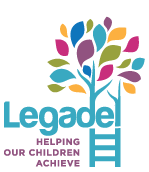What is Occupational Therapy?
All children have a very important job to do. They have to grow, learn, socialise and play. Children do this every day by exploring the boundaries of their abilities. When they are successful, children develop and thrive and this sense of achievement makes them happy.
However, if children have learning, emotional, psychological or physical difficulties, this can hinder their ability to grow, learn, socialise and play, resulting in them not coping with basic activities such as getting dressed or brushing their teeth. Equally at school, children may have difficulty concentrating in class or lack the confidence to take part in playground games such as playing catch. This will affect their ability to learn, participate in school activities and make friends, which can be difficult, because ‘fitting in’ is so important to a child’s self-esteem and happiness.
The purpose of occupational therapy is to help the child achieve or maintain their maximum level of independence and to develop practical life skills so that the child can participate to his/her full potential in the home and classroom environment. This occurs in partnership with the child’s family or teacher within the child’s home or school community.
Occupational therapists assess, advise and provide intervention for a range of difficulties that school children experience. These include coordination difficulties with fine and gross motor skills, handwriting difficulties and self-care skills including feeding and dressing and sensory processing difficulties that affect functional skills.
Occupational therapists might:
- Help kids work on fine motor skills so they can grasp a pencil and other good handwriting skills such as posture, paper positioning and hand strengthening.
- teach kids coordination skills needed to feed themselves, use a computer, or increase the speed and legibility of their handwriting
- Address hand-eye coordination to improve kids' play skills (hitting a target, batting a ball, copying from a blackboard, etc.)
- Work with kids who have sensory and attentional issues to improve attention needed for learning and social skills


